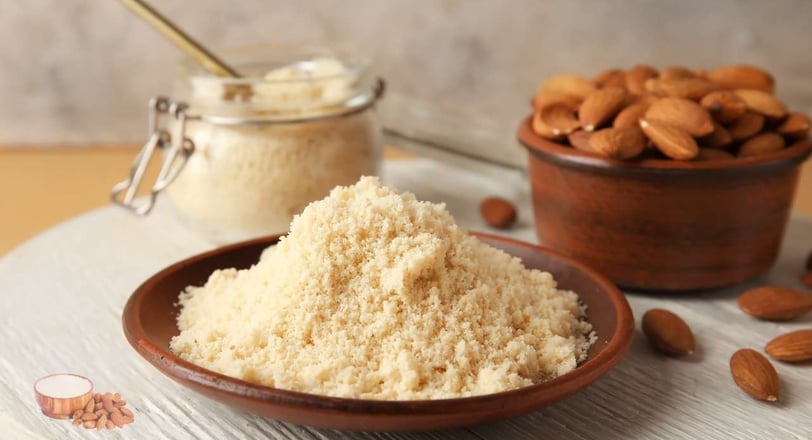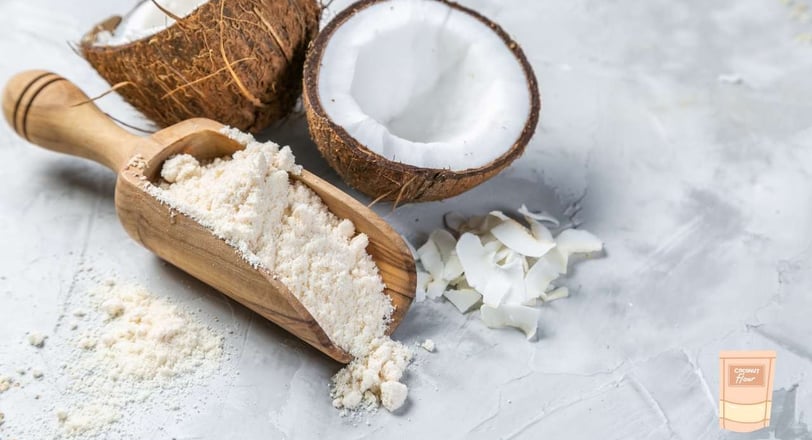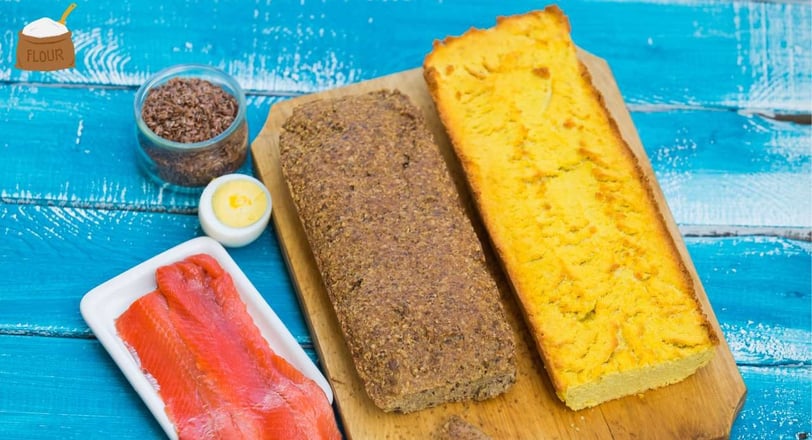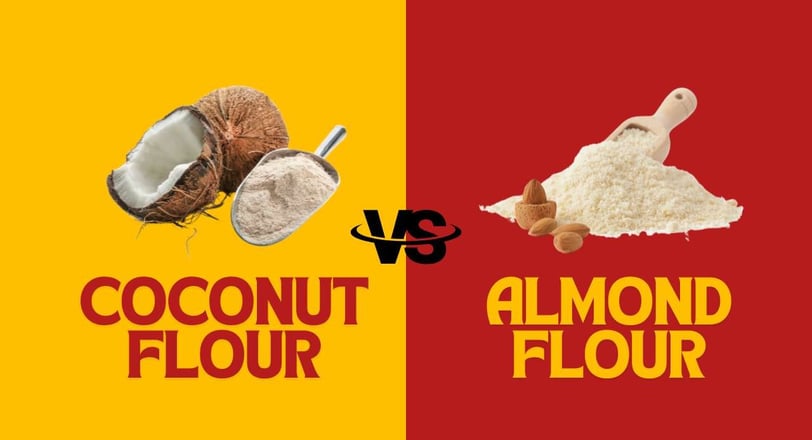Coconut Flour vs Almond Flour
If you're looking for for gluten-free or grain-free alternatives to typical wheat flour, you’ve definitely come across coconut flour and almond flour. Both are great options, but they have some significant differences in terms of nutrition, flavor, and how they work in recipes. Let's look at it so you can choose the one that best meets your needs.
What Is Coconut Flour?
Dried and ground coconut meat is used to make coconut flour. Imagine it as shredded coconut that is finer and drier. Actually, the pulp left over after making coconut milk or cream is usually used to make it. It is naturally gluten-free and has a mild coconut taste.
You should be aware that coconut flour has a high capacity for absorption, it can absorb around four times its own weight in liquids. Because of this, recipes that use coconut flour usually need more liquid or eggs to get the proper consistency. It's commonly used in smoothies, muffins, and pancakes.
What Is Almond Flour?
Almond flour, sometimes called almond meal, is made by grinding blanched almonds into a fine powder. The blanching process removes the almond skins, giving the flour a smooth texture and uniform color.
Almond flour is also grain-free and gluten-free, making it perfect for low-carb diets. It’s great for baking recipes like macarons, financiers, and other gluten-free desserts. While it won’t give you the same airy texture as wheat flour, almond flour adds a rich, nutty flavor to baked goods.


Can You Substitute Almond Flour and Coconut Flour for Each Other?
The short answer? Not directly. Coconut flour is far more absorbent than almond flour, so you’ll need to adjust the liquid and flour amounts in your recipe.
As a rule of thumb, use about a quarter cup of coconut flour for every cup of almond flour in a recipe. This works best for recipes that don’t rely heavily on almond flour.
Coconut Flour vs Almond Flour Nutrition
These two flours are quite different nutritionally:
〰 Coconut flour: High in fiber, low in carbs, and lower in calories. Great for digestion and weight management.
〰 Almond flour: Higher in healthy fats and protein, which can provide energy and support muscle repair.
If you’re watching your carbs, almond flour is the better choice, but coconut flour is fantastic if you want something lower in calories.
Alternatives for Almond Flour
Looking for a replacement for almond flour? Sunflower seed flour, hazelnut flour, or cashew flour are good options. You can also use coconut flour, but remember to adjust the liquid ratio due to its high absorbency.
Is Almond Flour Gluten-Free?
Absolutely! Almond flour is naturally gluten-free, making it a safe and delicious option for those with celiac disease or gluten sensitivities.


Does Coconut Flour Taste Like Coconut?
Yes, but the flavor is mild. In most recipes, it blends well with other ingredients, so you might not even notice it. If you’re not a fan of coconut, keep this in mind.
Alternative for Coconut Flour
Depending on the recipe, almond flour, oat flour, or cassava flour can be used in place of coconut flour. You will need to adjust the liquid proportions in your recipe if you use coconut flour instead of regular flour because of the coconut's ability to absorb liquid.
Is Coconut Flour Gluten-Free?
Yes, there is no gluten at all in coconut flour. It is perfect for gluten-free diets because it is made from dried coconut meat and contains no wheat or grains.
Nutrition of Coconut Flour
Coconut flour is packed with fiber, which helps digestion and keeps you feeling full longer. It’s low in carbs and calories but still provides a decent amount of protein. Plus, it’s gluten-free and has a mild sweetness that can enhance your recipes. It’s a great option for people looking to add more fiber to their diet or stick to low-carb eating plans.


Coconut Flour vs Almond Flour for Baking
Baking with coconut flour and almond flour can feel like an experiment. Coconut flour is super absorbent, so you’ll need less of it, along with extra liquid or eggs to keep things moist. Almond flour gives baked goods a denser, nuttier texture, while coconut flour results in something fluffier. Both can work wonderfully, but they’re not a 1:1 substitute for each other—you’ll need to adjust your recipes accordingly.
Coconut Flour for Pancakes
Coconut flour makes fantastic pancakes! Its natural sweetness pairs beautifully with syrups and fruits. Just remember, because it absorbs so much liquid, you’ll need to add plenty of eggs and milk (or a non-dairy alternative) to balance the batter. The pancakes turn out light, fluffy, and full of fiber—a perfect start to your day.
Your Go-To Guide For:
Baking Soda vs Baking Powder: Uses & Substitute ↗
For More Articles Visit: KoolKitchen.pk ↗
FAQs
Does Almond Flour Go Bad?
Almond flour can go bad, especially if it’s not stored properly. Because it’s made from nuts, it contains oils that can turn rancid over time. To keep it fresh, store it in an airtight container in the fridge or freezer. Check for any off smells or changes in texture before using it.
Does Coconut Flour Go Bad?
Like other flours, coconut flour can go bad if it’s not stored properly. Keep it in an airtight container in a cool, dry place, or store it in the fridge or freezer. If it smells off or has a weird texture, it’s time to replace it.
What are the Substitutes of Coconut Flour?
If you’re out of coconut flour, try almond flour, cassava flour, or chickpea flour. Remember, coconut flour’s absorbency is unique, so you’ll need to adjust the liquid in your recipe.
Is Almond Flour Keto?
Yes, almond flour is perfect for keto diets. It’s low in carbs and high in healthy fats, making it a great choice for staying in ketosis. You can use it for baking, breading, and more.
Is Coconut Flour Keto?
Coconut flour is suitable for keto! Because it's high in fiber and low in carbs, it's a great way to add a little sweetness to keto-compliant recipes.




